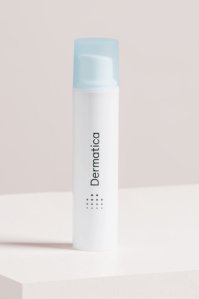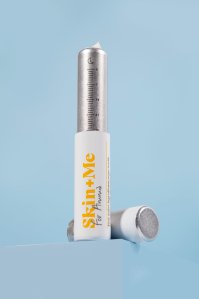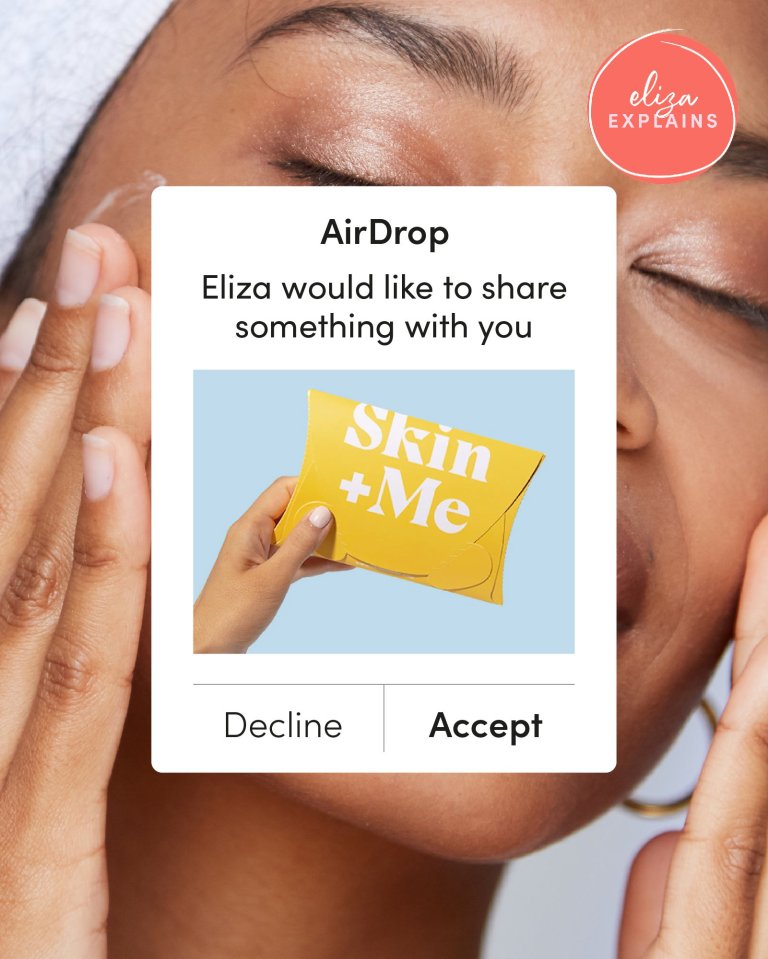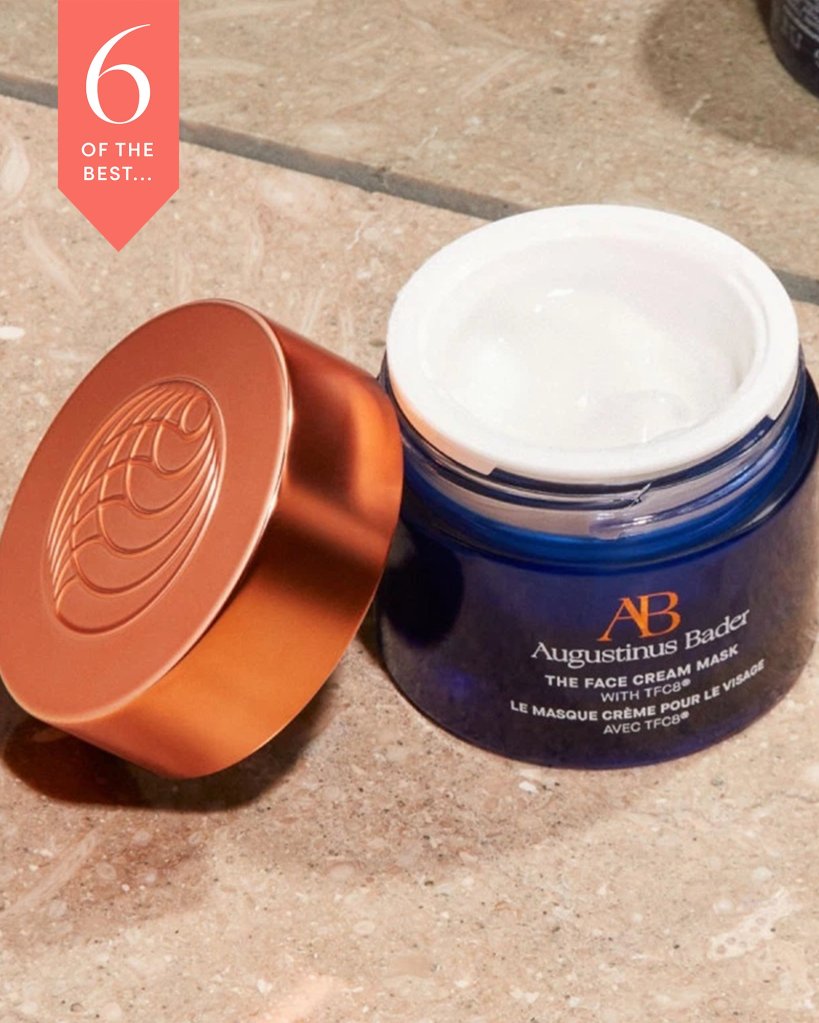Over the past few years, the high street has undeniably democratised over-the-counter skincare, making previously little-known or expensive ingredients available at affordable prices and in more formulations than you can fit in your bathroom cabinet.
Whether you’re looking for a retinol for sensitive skin or vitamin C serums for brightening, there’s not much you can’t get your hands on. That is, aside from prescription skincare.
Up until pretty recently, prescription skincare was reserved for severe skin issues (who didn’t know someone able to share a horror story about Roaccutane?), with a trip to the doctor or dermatologist required for a personalised prescription.
That is until a surge in social media conversations around topical skincare medications such as Tretinoin pushed for prescription skincare to become more accessible – and the gap in the market was soon filled.
Of course, we’re all too familiar with how difficult it can be to get a doctor’s appointment, and a dermatologist isn’t an option that’s affordable for everyone. Noticing the need for expert advice and accessible, personally recommended treatments is what prompted Dermatica to launch back in 2018.
“Acne makes up about 3.5 million GP visits in the UK alone every year,” says Dwayne D’Souza, CEO and founder of Dermatica. “Access to dermatology specialists in the UK is scarce. The combination of a digital consultation and access to up-to-date, prescription topical treatments at an affordable price means more people can access the treatment they need without waiting.”
Below, we dive into what online prescription skincare services can actually offer, and ask dermatologists what they think about this relatively new area in the skincare industry – the good and the bad.
What is a prescription skincare service?
Online prescription skincare services can vary slightly from one to the next, but their main defining factor is that they offer evidence-based prescription skincare through personal online consultations. No waiting for an appointment, no having to leave your house. Boxes ticked so far.
Dermatica was one of the first to do this in the UK and remains a leader in this area, alongside Skin+Me, which launched not long after.
There are also other brands, such as Skin Trust Club, that offer slightly different services. The process involves sending off a skin swab test to its lab, which is then evaluated by a team of skin experts who provide a report on your skin microbiome health and recommend a skincare routine accordingly.
The services allow access for the regular skincare consumer to ingredients such as differin (adapalene) and tretinoin, two retinol strengths previously only acquirable in the UK through a GP or derm.
What is the process for using a prescription skincare service?
After signing up, you’ll be asked to fill in an online consultation, which will ask you a variety of questions about your lifestyle, skin health, current skincare routine and any medications you are on. You’ll then submit a series of photos of your skin to be sent off, along with your questionnaire answers, to a team of dermatologists and pharmacists who will review your individual case.
“Our team will prescribe an evidence-based treatment most suited to treat your skin concerns,” says Dr Catriona Maybury, Clinical Lead at Dermatica.
“Your formula arrives in the post a few days later along with a treatment guide on how to apply and get the best out of your prescription. Our dermatology team is there for support or advice at all stages and will continually evaluate your treatment to ensure you’re getting the most out of it.”
Who are prescription skincare services for?
There’s no doubt that one of the best things about a prescription skincare service is its accessibility. Dermatica and Skin+Me both focus on personalised skincare, with the ability to offer prescription-level treatments thanks to qualified teams.
This makes it especially useful for those struggling with acne or other skin concerns that aren’t treatable with over-the-counter skincare ingredients.
“Currently, we offer treatments for acne, rosacea, hyperpigmentation, melasma, and anti-ageing, with plans to grow our product line and clinical service pathways in the near future,” says Dr Catriona.
Along with skincare consultancy companies such as Lion/ne (which works on a consultation basis), some like Skin Trust Club take a different approach, offering a recommended skincare routine based on the results of your skin test.



*Eliza may earn commission on sales from these product links
The products they recommend are all widely available and offer options that work for all budgets, which makes it a great service for someone who doesn’t necessarily need prescription-level ingredients but still wants an expert-advised and evidence-driven skincare routine.
“At Skin Trust Club, we want to empower people to really understand their skin,” says Tracey Ryan, Scientific Skincare Specialist for the brand. “Recent consumer research carried out by Skin Trust Club found that alarmingly 63% of our users misidentified their skin type before taking our test.”
“If you believe that you have oily skin when you actually have dry skin and are buying skincare products to reduce the amount of oil on your skin, you’re making your skin drier. This can promote skin conditions such as dermatitis.”
In short, prescription skincare services can help shoppers understand their skin type and needs, educating them to make informed choices, as well as giving them access to prescription-strength formulas.
What kind of ingredients/treatments can I get from a prescription skincare service?
As mentioned already, using a prescription skincare service gives you access to a team of dermatologists and pharmacists – and therefore prescription-level skincare.
However, your personalised prescription will be based on your individual consultation, and so dermatologists can also recommend using over-the-counter ingredients if they think these will be more beneficial to your skin.
“The main feature across most of our treatments are retinoids such as tretinoin and adapalene, as they have the strongest evidence base for reversing the signs of ageing and unclogging pores,” says Dr Catriona.
“We’re also able to combine tretinoin with hydroquinone, an inhibitor of the enzyme that makes melanin, which works particularly well in melasma and hyperpigmentation. For rosacea, we typically prescribe a combination of an antimicrobial metronidazole and antiparasitic ivermectin.”
Azelaic acid and niacinamide are also popular ingredients Dermatica recommends to its customers. Skin Trust Club currently doesn’t prescribe medicated treatments, instead using the skin test to provide an “agnostic” recommendation of products to incorporate into your routine, including microbiome-focused brands such as Byoma, Gallinée and Aurelia London.
How much do prescription skincare services cost?
Both Dermatica and Skin+Me offer a monthly subscription, with Dermatica starting at £19.99 a month and Skin+Me at £24.99 a month.
You can also cancel your subscription at any time, so whether you need to take a break for a month or have built up an excess, you don’t need to worry about wasting money on more skincare than you need.
Oh, and both brands have first-month offers for new customers, so be sure to keep an eye out for those.
Skin Trust Club offers flexible options too: you can choose from a one-off skin test for £99, or opt for their Skin Tracker subscription which costs £75 every three months (working out around the same as Skin+Me per month).
What do dermatologists think of prescription skincare services?
So I’ve given you the down-low on what you can expect from a prescription skincare service, but are they really as good as they sound? I put the question to consultant dermatologist Dr Alexis Granite and Dr Hasia Al Khubrah, skin specialist and founder of Doctors Dose.
“Prescription skincare services are helpful in that they allow for treatments to be more widely available,” says Dr Alexis.
“Many consumers (for a variety of reasons) are not able to see a dermatologist for a consultation, and prescription skincare services help level the playing field in terms of access to prescription treatments.”
She does add however that there are limitations to the services and recommends they should only be used when seeing a dermatologist face-to-face isn’t a viable option.
“A prescription skincare service cannot provide the same level of in-depth consultation and examination that a dermatologist can,” she says.
“For routine matters and especially for anti-ageing this may not present a big issue. However, for more complicated skin conditions, a visit with a dermatologist is always preferable, as there is potential for inappropriate use of potent skincare ingredients and misdiagnosis of skin conditions and/or skin type.”
On the other hand, it’s not just the physical effect of prescription skincare services that can be beneficial; “I’ve seen prescription skincare have a huge positive impact on people’s confidence and self-esteem,” says Dr Hasia. “It’s given people their life back because they’ve finally got something that works.”
If you’re eager to find out a bit more about certain ingredients before signing up for a prescription service, read our beginners guide to retinol, or find out everything you need to know about niacinamide.










